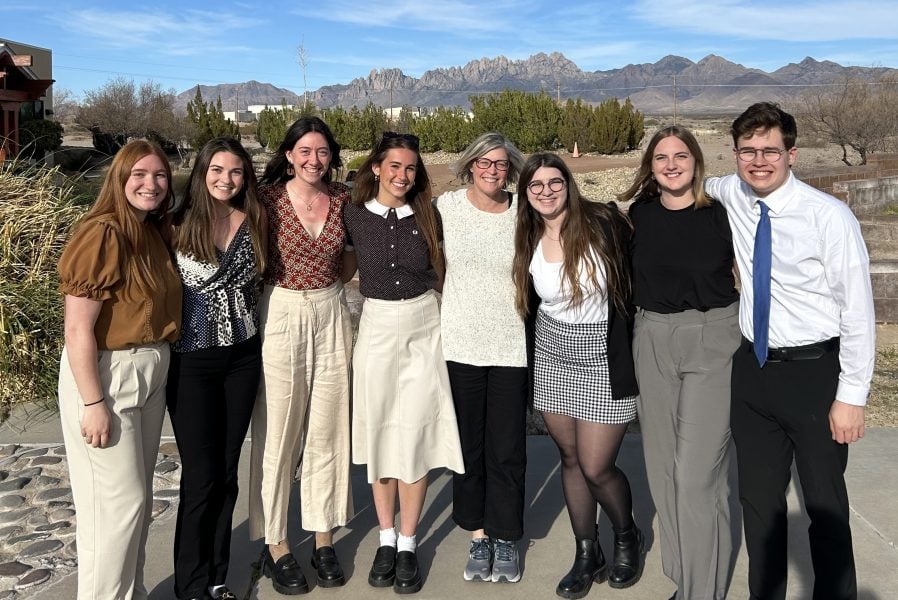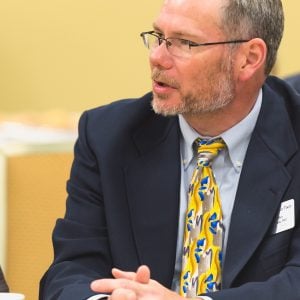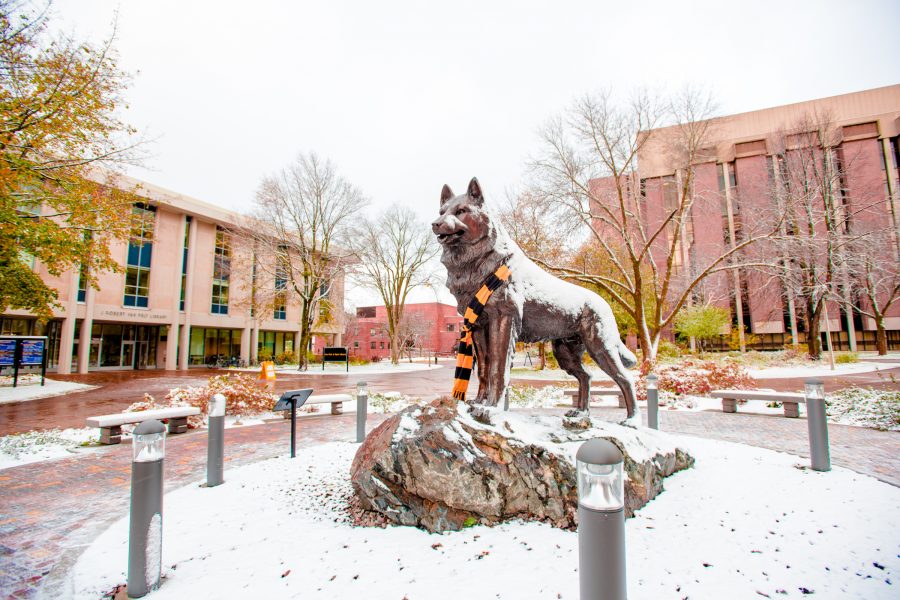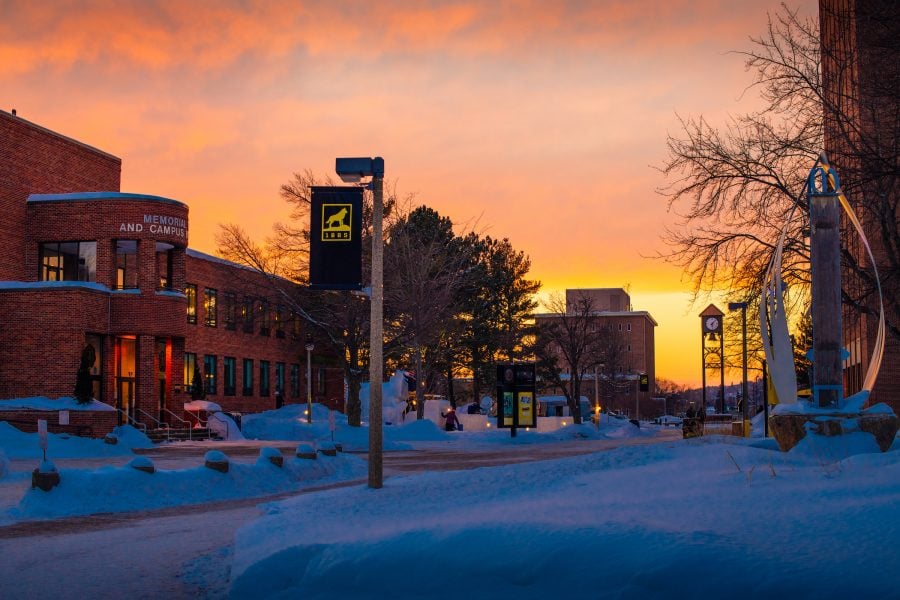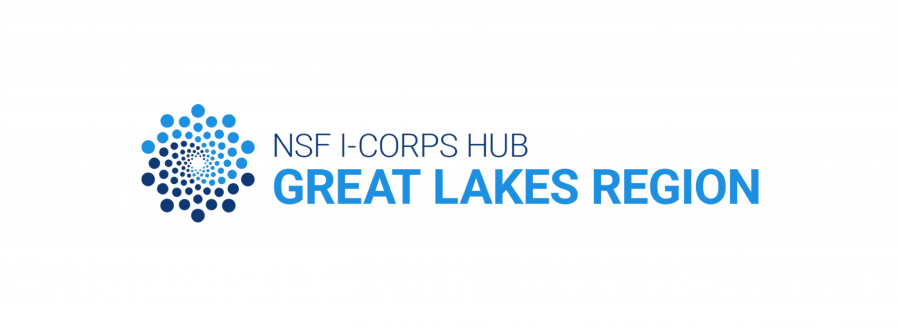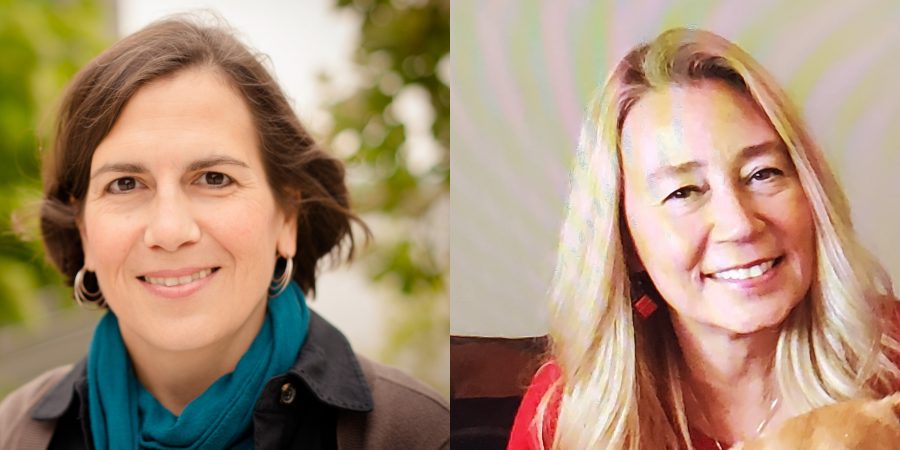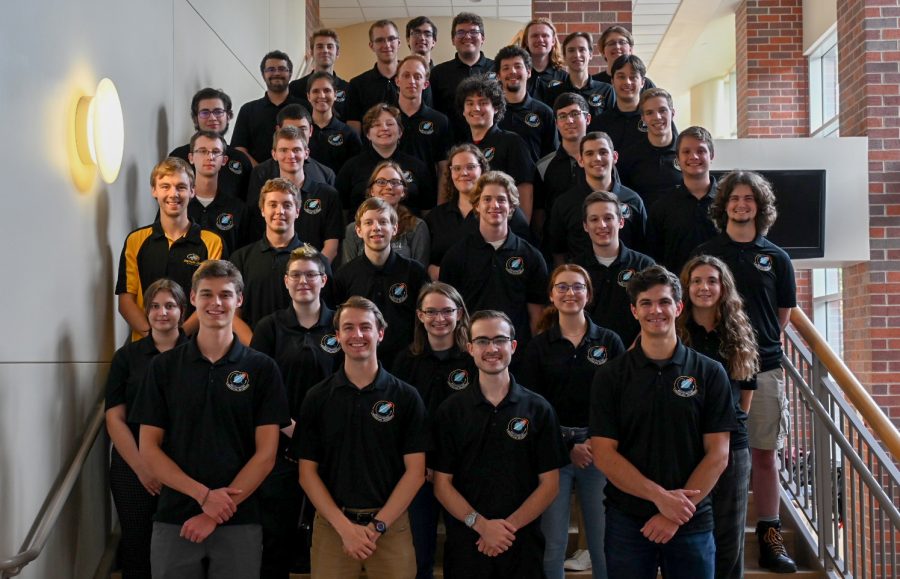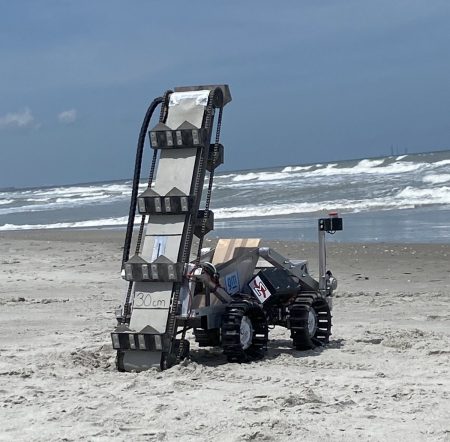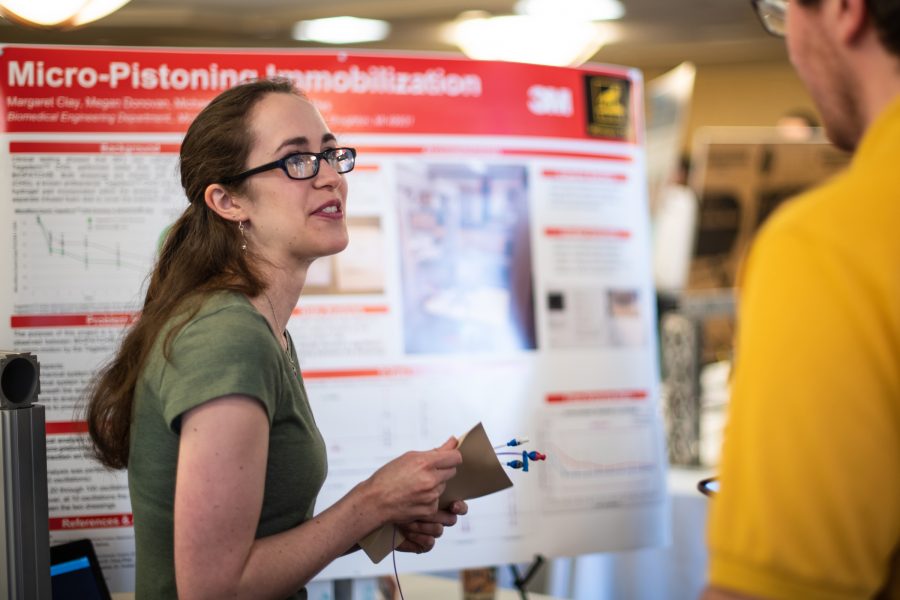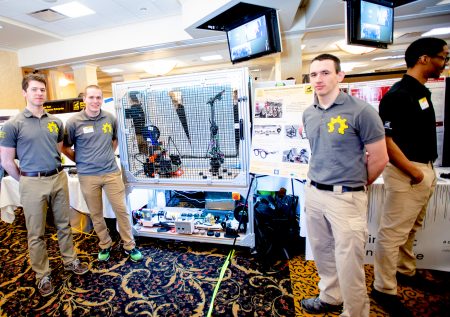

The Michigan Tech Steel Bridge Team qualified for the national AISC 2024 National Steel Bridge Competition, continuing their legacy of participating in this time-honored, annual competition.
The competition first began 37 years ago with undergraduate engineering students from just three schools—Lawrence Tech, Michigan Tech, and Wayne State—competing in a parking lot at Lawrence Tech.
This year, hosted by Louisiana Tech University, no less than 47 schools from all over the U.S., Canada, and Mexico traveled to Ruston, Louisiana for the competition. Teams were asked to design and build a steel bridge for a disc golf course located in nearby Lincoln Parish Park. The bridge needed to be able to accommodate players, park employees, and maintenance vehicles. The river the bridge would span was man-made, but for an added cost, teams could install and use temporary barges to facilitate the construction of their bridge.

As elements of the competition, the bridges are judged in categories, such as construction speed, lightness, aesthetics, stiffness, cost, economy, and efficiency. MTU’s team finished 9th overall and placed 8th in stiffness and 5th in efficiency.
“It’s a great opportunity for students to learn to work with each other on a complex project,” says civil engineering student Jon Wright, MTU Steel Bridge Team captain.

“The goal is to design a structure where strength, weight, and cost are all balanced to provide the best outcome. It isn’t enough to simply design a bridge that can support the load placed on it at competition. It must be able to support the load with minimal deflection and with minimal weight while being easy to assemble,” Wright explains. “Anyone can design a bridge that stands. But it takes an engineer to design a bridge that ‘barely’ stands.”
“The MTU team’s independence and initiative are always impressive to me,” adds faculty advisor, Andrew Swartz, associate professor of Civil, Environmental, and Geospatial Engineering. “They excel in all the types of activities you would expect in a competition like this—design, detailing, fabrication, and construction sequencing. But the team excels at things you may not necessarily think of, as well—like fundraising, recruitment, training, and documentation for future years. The students are the driving force behind the entire enterprise,” Swartz says. “I learn a lot when I travel with them.”
The MTU Steel Bridge Team consistently qualifies for nationals, and typically places in among the top 10 finishers. During COVID, the team even scored a top 5 finish, notes Swartz. “The MTU legacy of educating and producing high-quality engineers is still going strong.”


